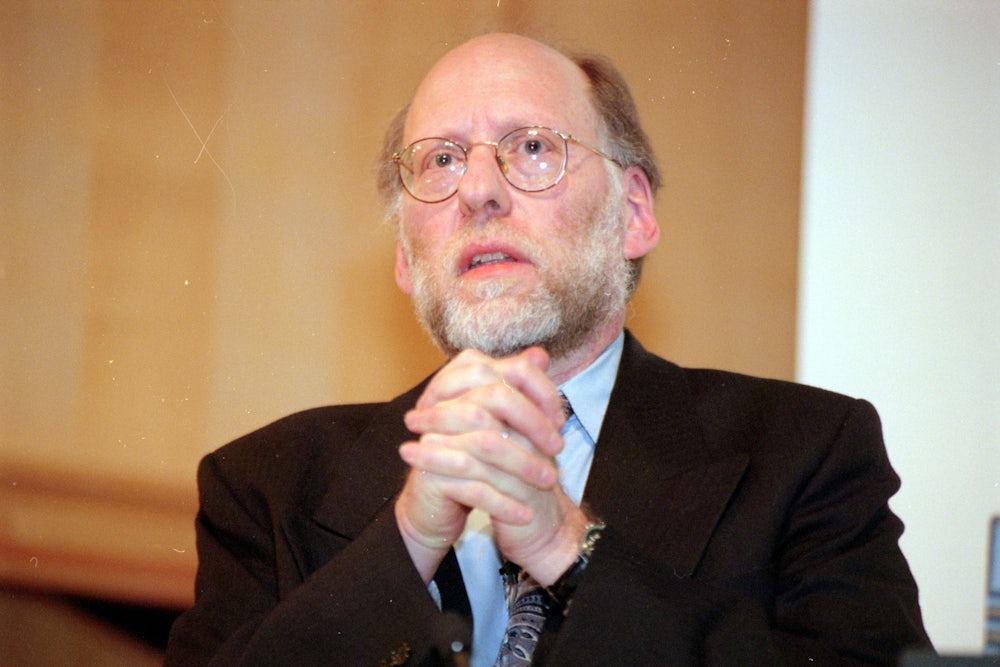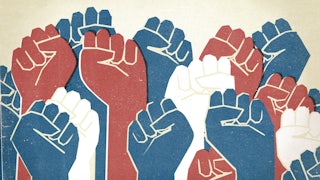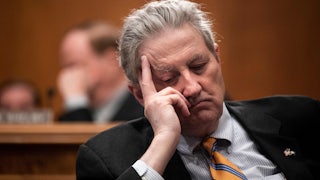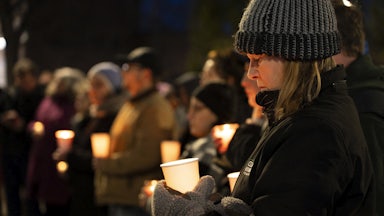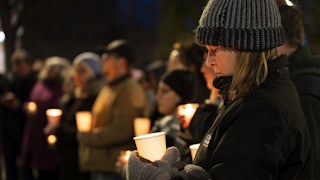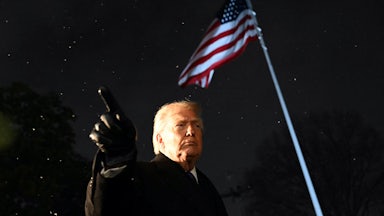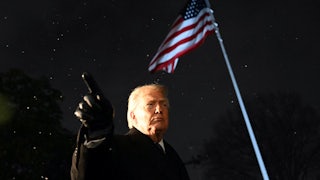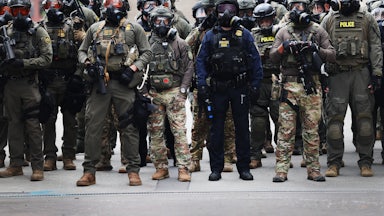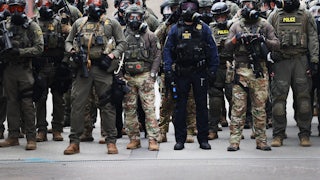Todd Gitlin was an extraordinary man.
A sociologist, cultural critic, journalist, a poet and novelist, an activist and intellectual, Todd lived a truly world historical life, and he was respected, admired, and loved by many. And now he is missed by many.
Todd was my friend.
I first learned of him in the mid-1970s as a Queens College undergraduate assigned to read Kirkpatrick Sales’s classic 1973 book SDS, one of the first accounts of the U.S. student movement of the 1960s. Long before I met Todd in person, I “knew” him, a major figure in contemporary history, as a legend and a hero. I encountered him again in the early 1980s, when I was a graduate student and he a just-tenured Berkeley professor, this time through his dissertation-turned-book, The Whole World is Watching: Mass Media and the Making and Unmaking of the New Left. Now Todd was not simply a political hero but a scholarly role model, blending critical theory and incisive political commentary in an exemplary way.
I only met Todd in person sometime in the 1990s, after he had moved back to his native ground of New York City, teaching at NYU and living downtown. I was back in the city for a visit from Indiana to attend a Dissent board meeting. I interacted with him at the meeting and then grabbed a few beers with him and some others afterward. That was the start of our friendship. Over the years, I would often see him when I returned to the city. We would communicate from time to time about our common political and intellectual interests, especially our shared love of Albert Camus, but also our increasingly similar views about the state of the left and the challenges facing democracy. I was an avid reader of Todd’s political writing during this time, his many essays and especially his books: the prescient The Twilight of Common Dreams (1995); Letters to a Young Activist (2003), a terrific book that I was so happy to discover in the hands of my then-teenage daughter Lisi; and The Intellectuals and the Flag (2006).
With the ascendancy of Donald Trump, we became regular correspondents, sharing a common revulsion at this clear and present danger to the republic. During this time, Todd became a trusted sounding board for and supporter of my writing, and eventually I became a sounding board for him, as well. Our friendship rose to another level with the onset of Covid-19, when we discovered each other as close friends, Zooming for hours at least once a week, talking about politics and literature and music and life and the NBA. Todd was an avid Knicks fan until the end. Lately my basketball loyalty has shifted toward the Golden State Warriors, a team Todd loved back in his days in the Bay area. Of all of the topics we discussed, I think basketball was the one that brought the most pleasure—though, alas, poor Todd endured so many Knick-inflicted disappointments.
It was the two absolutely worst developments of recent years—Trump and Covid—that really brought us together. And it was the crisis surrounding the 2020 election that brought the two of us into regular conversation with Bill Kristol, a conversation, and a friendship, that I am certain none of us had ever imagined. Over the past five months, Todd, Bill, and I met very regularly to share our common concerns and to collaborate: on an “Open Letter in Defense of Democracy” published jointly by The New Republic and The Bulwark last October; a follow-up piece in December; and a series of projects, including a piece scheduled to appear in the American Federation of Teachers’ American Educator this August, in anticipation of the upcoming midterm elections.
Todd was indefatigable (if you doubt this, just read his New York Times obituary). I have never seen anyone work as hard, up until the end, in support of a political cause, in this case the defense of democracy. Todd knew and had the respect of so many people. He was involved in so many writers’ groups, educators’ groups, and other groups committed to defeating Trumpism and expanding democracy. He wrote regularly about this in a wide range of venues, from Dissent to USA Today. Todd was sharp, he was witty, he was a terrific writer and an equally adept public speaker, and he was always on … until he stopped.
My last real conversation with Todd occurred on the morning of December 29, in preparation for a meeting that Todd, Bill, and I had planned that day with Leo Casey, the educator and activist, to discuss the American Educator piece. Two hours later, the Zoom meeting began, and Todd, uncharacteristically, never showed up. He was then unreachable, and it was a few days before we learned that he had been hospitalized because of a severe heart attack and kidney failure. During the weeks that followed, a small group of friends was given updates about Todd’s situation by his stepchildren, Shoshana, Justin, and Fletcher Haulley; his devoted sister, Judith Gitlin; and Robert Jay Lifton—a friend of Todd’s since his undergraduate days at Harvard, where they collaborated on the anti-nuclear group TOCSIN—who diligently monitored Todd’s health situation. As Robert told me, “Todd’s cardiac situation seemed to improve, at least slightly, and he was given dialysis on several occasions for his kidney. But he remained very weak and then also contracted Covid-19. He improved sufficiently for him to be released … to a rehab place just a few days ago.” And then he passed.
In recent years, Todd’s email messages automatically contained two texts as part of his “signature.” The first was a quote from Henry James: “We work in the dark—we do what we can—we give what we have. Our doubt is our passion, and our passion is our task. The rest is the madness of art.” The second was a very simple statement: “We have kept the republic. So far.”
Todd worked, constantly, in the dark and against it. He gave everything to the “doubt” that was his passion, and it was a doubt not about the values of freedom and democracy but about the workings of power and the need to question and challenge those in power in the name of a better world. In his youth he did this as a self-styled “radical.” As he lived, aged, and learned from his experiences, he evolved into a kind of radical liberal—a term coined by Arnold Kaufman, the University of Michigan professor who helped to inspire and mentor the early Students for a Democratic Society. An elder statesman of the left, Todd eloquently enacted the values of political commitment and political sobriety. But he was not your ordinary man of politics. Like his hero, Camus, he was also a man of enormous talent, steeped in art and literature, who also submitted, in beautiful ways, to “the madness of art.” Back in September he published a very substantial and very beautiful essay in The Yale Review on one of his literary heroes: “In Pursuit of Clancy Sigal: A writer’s radical life.” He also finalized a novel, The Opposition, which is scheduled to be published by Guernica World Editions this June and can be preordered here. (According to the Amazon blurb, “Set during America’s 1960s New Left movement, The Opposition tells the story of twenty-something young men and women linked by a fierce desire to change the world who become involved in the civil rights and anti-war movements, when under the pressure of Vietnam, and America, unraveling, their web of passion and pain reaches a breaking point.”)
Before his passing, Todd was working on a memoir, entitled War Baby, that I am honored to have read. It is a wonderful, powerful, honest, and beautifully written manuscript, and it overflows with historical anecdotes, literary allusions, and honest self-reflections. In a way, it perhaps represents the nonfiction companion to his novel.
Rereading it yesterday, I was reminded that back in the day, one of Todd’s favorite rock songs was The Doors’ “The End.” The song begins with these lyrics, which seem so powerful to me today as I write:
This is the end
Beautiful friend
This is the end
My only friend, the end
Of our elaborate plans, the end
Of everything that stands, the end
No safety or surprise, the end
I’ll never look into your eyes … again
Can you picture what will be
So limitless and free
These lyrics seem fitting for those of us who were Todd’s friends and knew him as a person.
At the same time, Todd was most definitely a public intellectual, and given the passion with which he fought for justice until the very end, I think it more appropriate to close this tribute with some lines from a poem that he loved since his youth, Carl Sandburg’s “From the People, Yes”:
Lincoln?
He was a mystery in smoke and flags
Saying yes to the smoke, yes to the flags,
Yes to the paradoxes of democracy,
Yes to the hopes of government
Of the people by the people for the people,
No to debauchery of the public mind,
No to personal malice nursed and fed,
Yes to the Constitution when a help,
No to the Constitution when a hindrance
Yes to man as a struggler amid illusions,
Each man fated to answer for himself:
Which of the faiths and illusions of mankind
Must I choose for my own sustaining light
To bring me beyond the present wilderness?
Lincoln? Was he a poet?
And did he write verses?
“I have not willingly planted a thorn
in any man’s bosom.”
“I shall do nothing through malice: what
I deal with is too vast for malice.”
Death was in the air.
So was birth.
Todd Gitlin was an extraordinary man who lived so much, cared so much, and did so much. He loved the world, and was determined to live his life in a way that left it a better place than he found it. And he did.
In The Human Condition, Hannah Arendt observed that “men, though they must die, are not born in order to die but in order to begin something new.” Todd was an initiator and a creator, and his life is a testament to the power of new beginnings. And now that he has passed, it is on those of us who were his friends, and who shared his love of the world, to continue his legacy.
Death is in the air.
So is birth.
